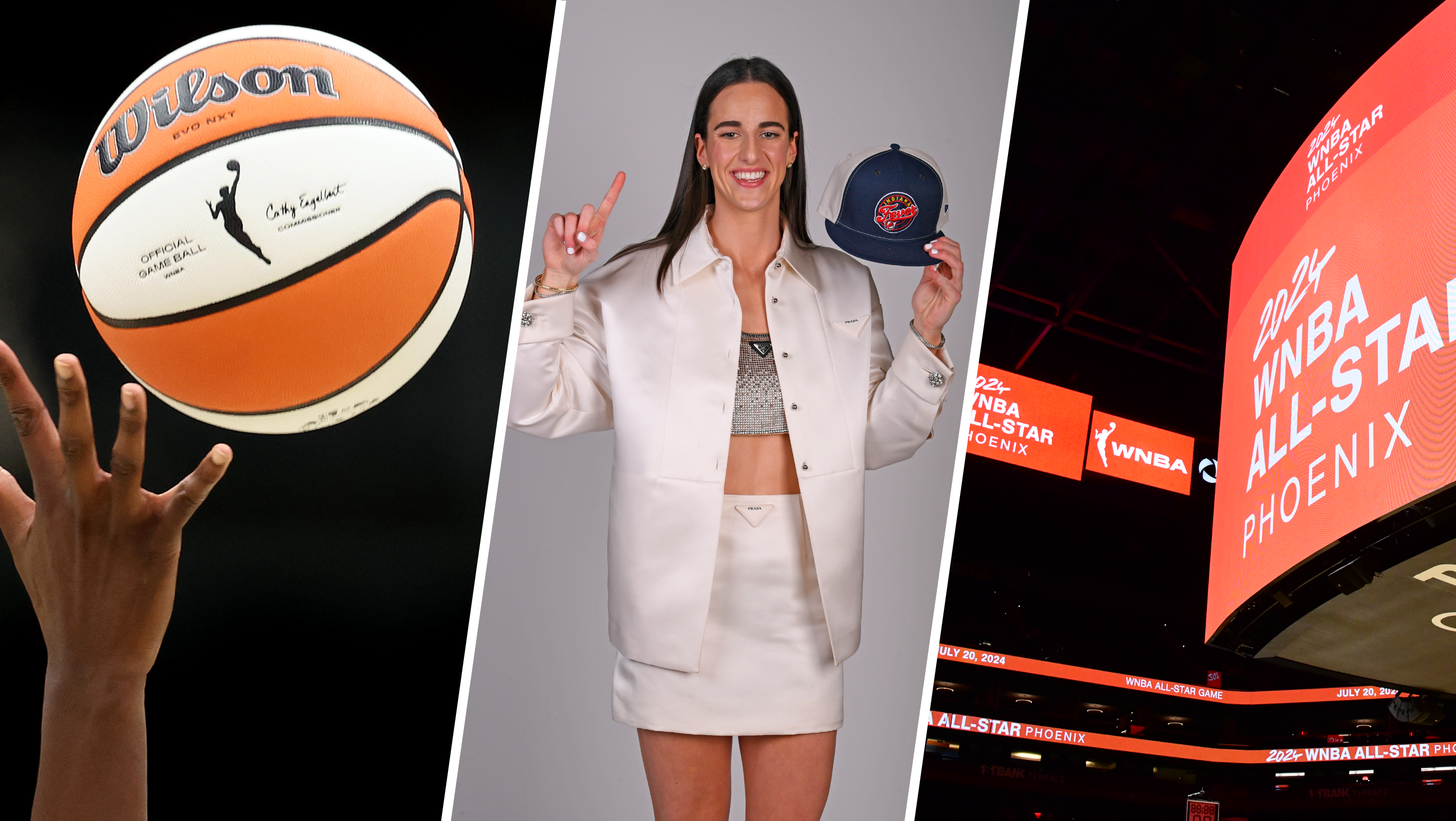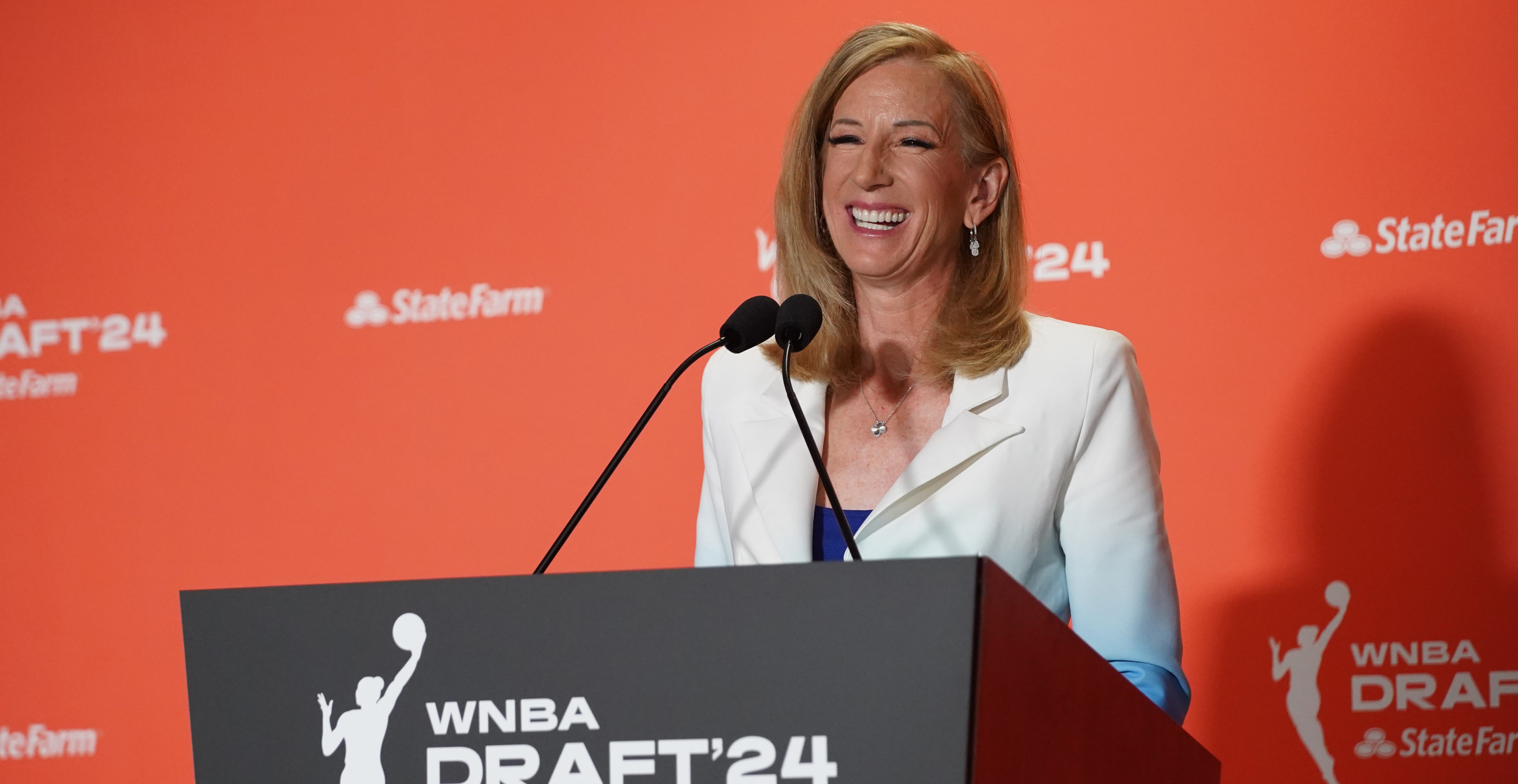In the last year, women's equality issues in sports have become a national conversation. It began with the 'More than Mean' campaign which highlighted the abuse many women, particularly women in public sports roles, face on social media. The video, which featured men reading vile tweets to the women who received them, sparked an avalanche of coverage from ESPN's 'Outside the Lines' to HBO's 'Real Sports.'
The public attention to the misogyny and double standards that still exist in sports media is an important first step, but it's time to move forward and discuss how we turn our anger and frustration into action.
While the name-calling many women receive online is abhorrent, the real problem is rooted in something much more complex -- tradition.
Stay in the game with the latest updates on your beloved Philadelphia sports teams! Sign up here for our All Access Daily newsletter.
While some may try, it's hard to deny that women are still viewed by many as the fairer (read: weaker) sex. We have a place in society and often times that place is the box of "female" roles like caregiver, teacher, mother.
If women do branch out into a male-dominated career, as many have -- quite successfully -- the emphasis is often placed less on being an asset in the workplace and more on our . . . well, take the 'ets' off assets.
Changing long-held beliefs and perceptions, however, is much easier said than done.
I believe it starts with asking for help. The idea of employing men to help reduce sexism may feel counterintuitive, but I think it's essential. Whether we want to admit it or not, women are outnumbered in athletics and we need advocates from these men -- the majority.
News
Sadly, we may also need the validation. While this column is anecdotal and a first-person account, the author is brutally honest when he admits to often not trusting what the average women tells him, including his own wife.
Damon Young writes:
Generally speaking, we (men) do not believe things when they're told to us by women. Well, women other than our mothers or teachers or any other woman who happens to be an established authority figure. Do we think women are pathological liars? No. But, does it generally take longer for us to believe something if a woman tells it to us than it would if a man told us the exact same thing? Definitely!
I'm fairly certain I couldn't throw a baseball in a crowded room without hitting a woman who has been doubted by a male colleague, family member, friend or significant other.
I feel well-respected in my office, but I also know that there are times when I offer an opinion and I can't help but wonder if it will be taken lightly until a man pipes in with a similar thought process. I look forward to the day when it's not even part of my thought process.
When men stop doubting us, it is inevitable women will believe more strongly in themselves. This doesn't make us weak, it makes us human. I would argue it's the same for a male teacher or stay-at-home dad -- once a female believes in their abilities in that role, the men feel more confidence in themselves.
The other piece to the change puzzle is one which may drum up more emotion and dissent. I think as women we must start sharing some of the responsibility for those old habits taking so long to die.
And before you rush to send me a nasty e-mail, allow me to explain, as this view is by no means a way to shift blame to the victim.
Far too often I have conversations with women who succumb to practices and behaviors they are uncomfortable with, not because they have been explicitly told to act, dress, or perform their job in a specific manner but instead because they default to "that’s what the industry expects." My response? The industry expects it because we allow it.
We have a voice, and we can't be afraid to use it. Each time we suffer one small injustice quietly, it becomes harder to speak up when something is really at stake.
As women we face daily challenges that our male colleagues do not: Judgment and expectations around our physical appearance, doubts about our knowledge, and dismissal of our opinions based simply on our gender.
We can and should say no to the assumption that our value is based on our looks. Women do not "need" to make beauty and "OOTD" (outfits of the day) the focus of their social-media accounts or the most important facet of their reporting or opining. I know plenty of women who are great journalists and sports minds, not just great female journalists and sports minds. When we allow ourselves to be reduced to nothing more than how we look, it becomes that much more difficult to demand we are seen as more than just a pretty face. This doesn't mean you shouldn't flaunt your beauty, but my hope is we don't hide our brains.
We can and should say no to the idea that women are best utilized as hosts, social media and sideline reporters. (Not that there is anything wrong with these roles, but it doesn't behoove me to pretend these stereotypes don't exist.) There is no reason a woman can't be a prominent insider, talk-show contributor, investigative reporter, etc. ... see above.
We can and should advocate for more female executives. I can count on one hand the number of females in decision-making positions I have interviewed with during the course of my 17-year career in sports media. We all know smart, talented women in the field. It is our job to make sure the right people are familiar with their work and know how important it is to have a variety of individuals steering the content and journalists they feature on all platforms.
We can and should advocate for our female colleagues. Sports media is a limited numbers game. In the age of cutbacks, jobs are fewer and further between. I still think it does us all a disservice when we treat any prospective female co-worker as competition. She may have lost, but Hilary Clinton was right when she said we are stronger together.
All that said, let me clarify that this does not mean blindly supporting all actions because someone is female. Respect is earned in this industry, no matter your gender.
Our current political and social climate has us consuming more information than ever before. Every cause is met with a hashtag and skepticism. Raising awareness about the issues women face in athletics was a good first step, but it's time to keep moving. Words without action will leave us without anywhere to go.


